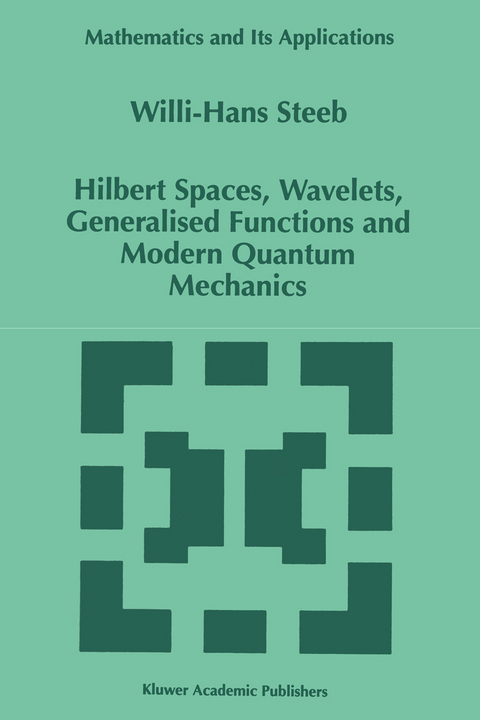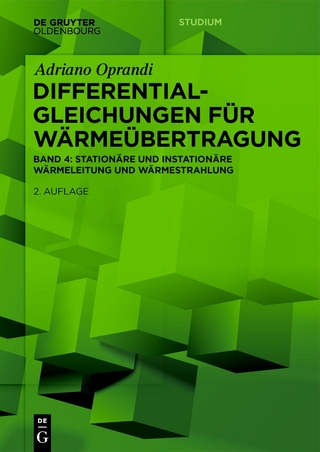
Hilbert Spaces, Wavelets, Generalised Functions and Modern Quantum Mechanics
Springer (Verlag)
978-0-7923-5231-0 (ISBN)
This book provides an introduction to Hilbert space theory, Fourier transform and wavelets, linear operators, generalized functions and quantum mechanics. Although quantum mechanics has been developed between 1925 and 1930 in the last twenty years a large number of new aspect and techniques have been introduced. The book also covers these new fields in quantum mechanics. In quantum mechanics the basic mathematical tools are the theory of Hilbert spaces, the theory of linear operators, the theory of generalized functions and Lebesgue inte- gration theory. Many excellent textbooks have been written on Hilbert space theory and linear operators in Hilbert spaces. Comprehensive surveys of this subject are given by Weidmann [68], Prugovecki [47], Yosida [69], Kato [31], Richtmyer [49], Sewell [54] and others. The theory of generalized functions is also well covered in good textbooks (Gelfand and Shilov [25], Vladimirov [67]. Furthermore numerous textbooks on quantum mechanics exist (Dirac [17], Landau and Lifshitz [36], Mes- siah [41], Gasiorowicz [24], Schiff [51], Eder [18] and others).
Besides these books there are several problem books on quantum mechanics (Fliigge [22], Constantinescu and Magyari [15], ter Haar [64], Mavromatis [39], Steeb [59], Steeb [60], Steeb [61]) and others). Computer algebra implementations of quantum mechanical problems are described by Steeb [59]. Unfortunately, many standard textbooks on quantum mechanics neglect the math- ematical background. The basic mathematical tools to understand quantum me- chanics should be fully integrated into an education in quantum mechanics.
1 Hilbert Spaces.- 2 Fourier Transform and Wavelets.- 3 Linear Operators in Hilbert Spaces.- 4 Generalized Functions.- 5 Classical Mechanics and Hamilton Systems.- 6 Postulates of Quantum Mechanics.- 7 Interaction Picture.- 8 Eigenvalue Problem.- 8.1 Eigenvalue Equation.- 8.2 Applications.- 9 Spin Matrices and Kronecker Product.- 10 Parity and Group Theory.- 11 Uncertainty Relation.- 12 Harmonic Oscillator.- 12.1 Classical Case.- 12.2 Quantum Case.- 13 Coherent and Squeezed States.- 14 Angular Momentum and Lie Algebras.- 15 Two-Body Bound State Problem.- 15.1 Introduction.- 15.2 Spherical Oscillator.- 15.3 Hydrogen-like Atoms.- 16 One-Dimensional Scattering.- 17 Solitons and Quantum Mechanics.- 18 Perturbation Theory.- 19 Helium Atom.- 20 Potential Scattering.- 21 Berry Phase.- 22 Measurement and Quantum States.- 22.1 Introduction.- 22.2 Measurement Problem.- 22.3 Copenhagen Interpretation.- 22.4 Hidden Variable Theories.- 22.5 Everett Interpretation.- 22.6 Basis Degeneracy Problem.- 23 Quantum Computing.- 23.1 Introduction.- 23.2 Quantum Bit.- 23.3 Quantum Gates.- 23.4 Quantum Copying.- 23.5 Shor’s Algorithm.- 24 Lebesgue Integration and Stieltjes Integral.
| Reihe/Serie | Mathematics and Its Applications ; 451 | Mathematics and Its Applications ; 451 |
|---|---|
| Zusatzinfo | X, 238 p. |
| Verlagsort | Dordrecht |
| Sprache | englisch |
| Maße | 170 x 244 mm |
| Themenwelt | Mathematik / Informatik ► Mathematik ► Analysis |
| Mathematik / Informatik ► Mathematik ► Angewandte Mathematik | |
| Naturwissenschaften ► Physik / Astronomie ► Allgemeines / Lexika | |
| Naturwissenschaften ► Physik / Astronomie ► Theoretische Physik | |
| ISBN-10 | 0-7923-5231-9 / 0792352319 |
| ISBN-13 | 978-0-7923-5231-0 / 9780792352310 |
| Zustand | Neuware |
| Informationen gemäß Produktsicherheitsverordnung (GPSR) | |
| Haben Sie eine Frage zum Produkt? |
aus dem Bereich


